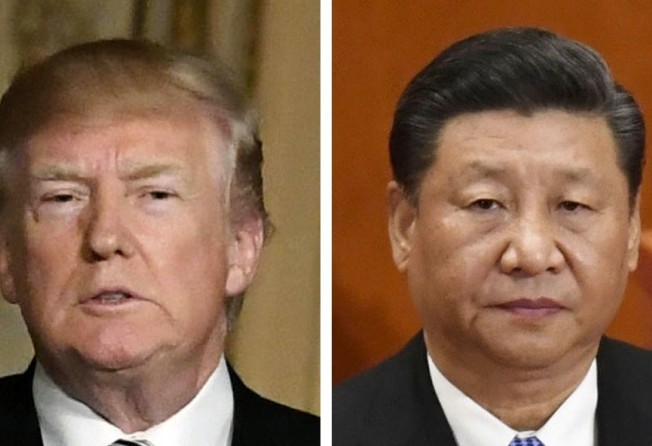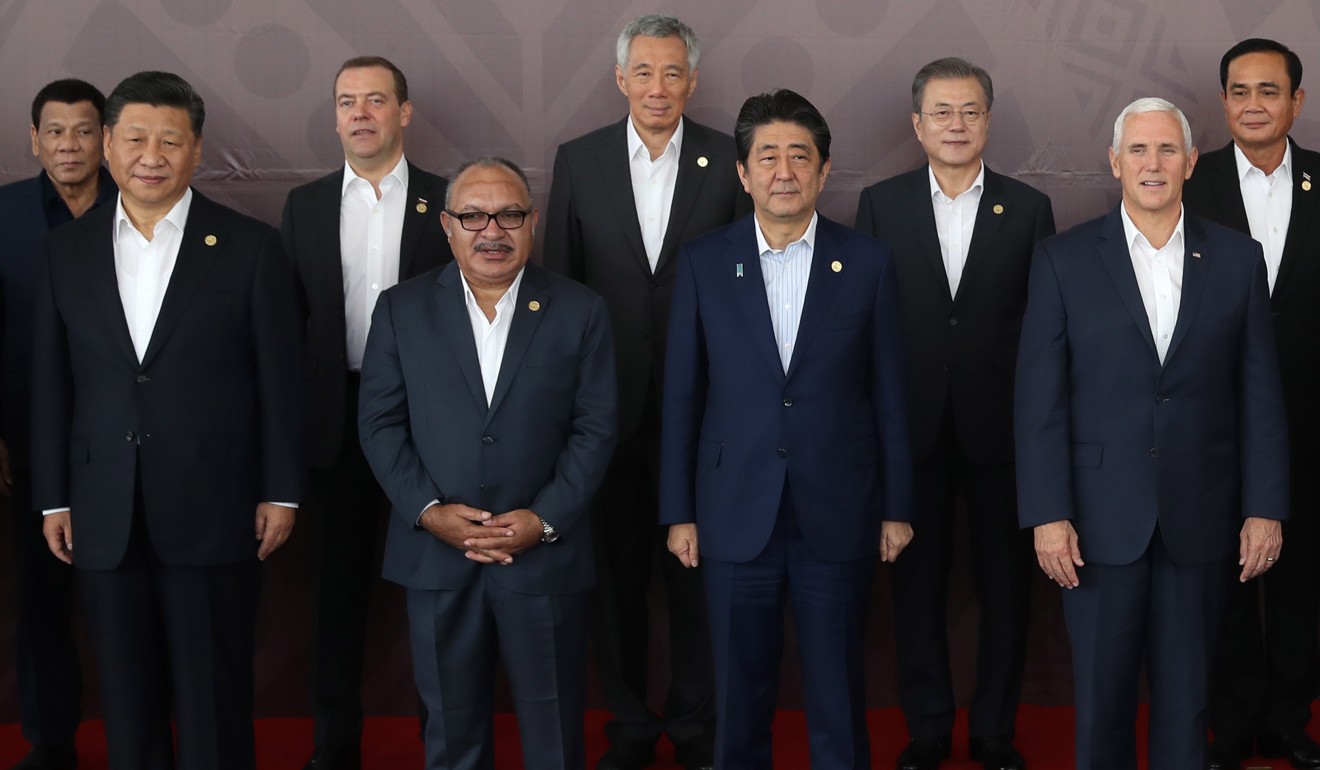After Apec tensions, expect ‘extra pressure’ when Xi Jinping and Donald Trump meet at G20
- Atmosphere described as ‘extremely tense’ at Pacific nations summit, and observers say it reflects reality of rivalry between China and the US
- Washington will be seeking to maximise pressure on Beijing ahead of crunch meeting at G20 summit, according to analysts

Beijing should prepare for tough talks when Chinese President Xi Jinping and US President Donald Trump meet at the G20 summit after open hostility between the two nations at the Apec gathering, observers say.
That hostility resulted in the 21 Pacific Rim leaders for the first time failing to reach a consensus on a formal declaration at the Asia-Pacific Economic Cooperation meeting in Port Moresby over the weekend, and it is expected to overshadow future trade negotiations between Beijing and Washington.
The rift was on full display when Xi and US Vice-President Mike Pence traded barbs at the summit on Saturday, neither of them listening to each other’s speeches and both lashing out about the trade war, Xi attacking America’s protectionism and Pence taking aim at Beijing’s “Belt and Road Initiative”.
On Monday, Chinese foreign ministry spokesman Geng Shuang said many developing nations opposed trade protectionism, and he denied China’s stance was the reason there was no agreement. “Power politics and economic bullying is opposed by most Apec members,” Geng said.
Three delegates from Papua New Guinea described the atmosphere between China and the United States at the summit as “extremely tense”.
Chinese delegates on Saturday left the hall after Xi made his speech, and before Pence gave his.
“Some left the venue, but those who were still at the venue were just standing outside the hall – they chose not to listen to Pence’s speech,” one of the delegates from Papua New Guinea said.
Pence told reporters on Sunday he “had a candid conversation” with Xi, but a second delegate said the Chinese and US officials appeared to be keeping their distance.

“I don’t recall Americans and Chinese talking to one another privately … They all walked in as a group and left as a group … There wasn’t any chance for them to freely talk to one another,” the person said, adding that US-China rivalry had put the Papua New Guinean government in a difficult position.
Diplomatic observers said the rancour over the weekend reflected the reality of a hardening geopolitical rivalry between China and the US, and that Washington would be seeking to maximise pressure on Beijing ahead of a crunch meeting between Xi and Trump at the Group of 20 summit in Argentina in two weeks.
Negotiators and decision-makers from both sides will come under extra pressure in the next fortnight
Liu Weidong, a China-US affairs specialist from the Chinese Academy of Social Sciences, said while the trade war was hurting both China and the US, Beijing may face more pressure.
“This meeting [between Xi and Trump] means more to China than to the US, but negotiators and decision-makers from both sides will come under extra pressure in the next fortnight.”
Xi has tried to position China as a champion of free trade in the face of Trump’s “America first” protectionism, but according to analysts he will have a difficult time convincing leaders of major powers like Germany, France and the European Union, who share many of Washington’s concerns about China – even if they are worried about being caught in the middle.
“Beijing needs to be prepared,” Liu said. “[The Western powers] may not firmly stand with either China or the US, but they would tacitly approve of some of the US measures that could further press China.”
Liu added that Beijing would have to do something about intellectual property rights protection and lower tariffs to end the trade war.
James Floyd Downes, a lecturer in comparative politics at Chinese University of Hong Kong, said the US-China relationship was on a precipice and was likely to get worse.
“What we will most likely see in the coming months and years ahead are the two superpowers vying for supremacy on the international stage,” he said.
“It appears that the significance of Apec has declined, with both the US and China not using the forum to decide concrete policy, but for short sound bites and substance that further underlines their overall national interests.”
According to a Chinese government source, Beijing strongly opposed the inclusion of a line about “unfair trade practices” in the draft communique. The United States has used the term in complaints and accusations about China’s market restrictions, forced technology transfers, industrial espionage, government subsidies and intellectual property theft.
But the source, who was speaking on condition of anonymity, said it was far-fetched to say that this line alone had caused the impasse.
Shi Yinhong, an international relations professor at Renmin University of China in Beijing, said there was still hope for a truce between China and the US.
“So far, developed countries including Japan, Australia and Europe have been careful [about how they handle the trade war between China and the US],” Shi said. “It seems that the US may want to try to force an agreement with China – and it may accept some parts, but not if the proposals on its economic and industrial policies are too strict.”